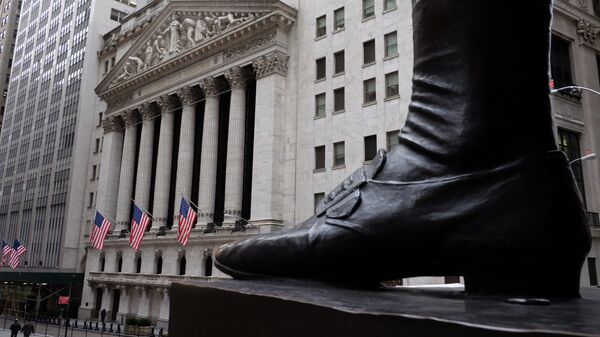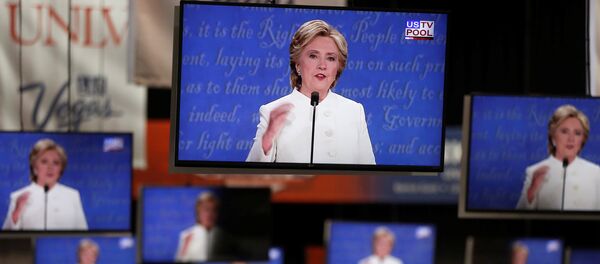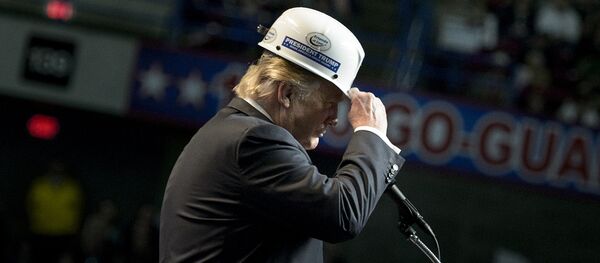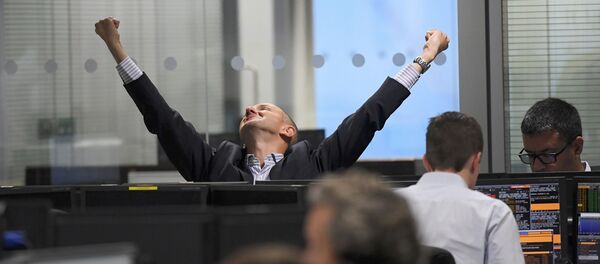Speaking to Sputnik Deutschland, Wolff, the author of the book 'Pillaging the World: The History and Politics of the IMF', explained that the election result "could best be explained by the social circumstances in the United States. In the last 40 years, the US has faced a decline like few other countries. The average incomes of the middle and working classes have declined. Infrastructure is crumbling. The country is $20 trillion in debt."
Asked why millions of poor Americans have decided to vote for a billionaire to solve their economic problems, Wolff explained that "in America, the idea of the American Dream still prevails. People still believe that it's possible to go from being a dishwasher to a millionaire. The poor are the ones hanging on to this dream."
Trump's win resulted in jitters on the US stock market, with major indices dropping by as much as 5%, and futures trading plunging through Wednesday. Wolff suggested that this was actually a threat aimed at Trump, an indication that he would be made to submit to Wall Street, whether he wanted to or not.
"Wall Street had unequivocally placed its bets on Hillary Clinton. The Democratic candidate received substantial support from Goldman Sachs, JP Morgan, and from abroad, including from Saudi Arabia and Qatar. On the other hand, of course, this is a kind of threatening gesture toward Trump, [telling him that] he must submit to the demands of Wall Street. Trump already factually [preemptively] responded a few days ago, announcing that he would appoint a former Goldman Sachs manager and close friend of George Soros as his treasury secretary."
Ultimately, the political economist argued that "whether under Obama, Clinton or Trump, [US] politics will be dictated by Wall Street. The power structures around the Federal Reserve have been consolidated for over 100 years. The job of the president, in general, is to sell to the American people the interests of Wall Street as their own; this is the kind of job for a showman."
At the same time, what makes Trump different, in Wolff's view, is the fact that for the first time, a politician has managed to win not only a parliamentary majority, "but succeeded in the course of the race to create a political movement among the people. And this movement consists of very unhappy people, some of them also armed."
Asked whether the US under President Trump will abandon its role as world policeman, Wolff said that the answer is probably 'no'.
"However, it does seem that Trump will partly change US policy toward Russia. Clinton was more or less on a course for war against Russia. Trump is more a supporter of Zbigniew Brzezinski, the eminence grise of American policy which stands for a 'new realignment', i.e. a reorientation of politics toward Russia. I think Trump will try to defuse this conflict to some extent."
As for China, Wolff believes that a Trump White House will quickly be put on a course for a major conflagration. "Trump has already announced the introduction of punitive tariffs against Chinese goods. This will lead to tremendous problems. China is now the world's number one economic power. It is the largest trading partner of 120 countries around the world, while for the US that figure is only 70 countries."





